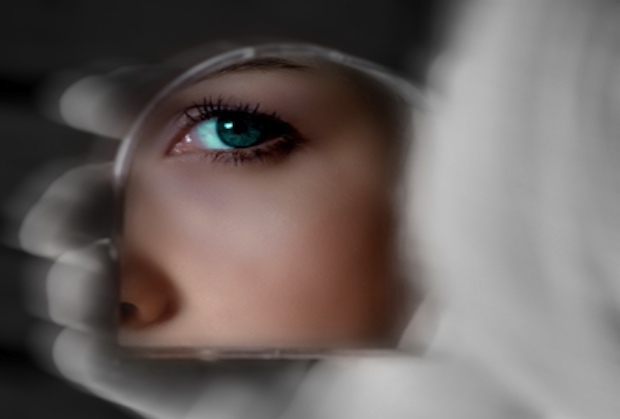What we see in the mirror may be one of the most powerful forces in how we live our lives. That view shapes our aspirations and expectations – sometimes for good, sometimes not. The power of self-image is pretty hard to overestimate. That’s what makes it especially important to address the fact that a negative view of oneself is, unfortunately, terribly common.
As I’ve been reminded lately, the challenge of appreciating who you see in the mirror and thinking positively about yourself – for just about everyone from teenage kids to seniors – is very real. A major study recently released in China, where honoring the elderly has been woven into the culture for thousands of years, shows that more than 40% of elderly people in Taiwan consider themselves a burden to their family or society, and more than 60% consider themselves unhealthy, just because they’re older!
Interestingly, significantly fewer young people hold negative stereotypes of the elderly than that group holds of themselves. Clearly, the self-reflection you see in the mirror is a toughie – and not only for the aging.
The challenge of appreciating who you see in the mirror and thinking positively about yourself is very real.
According to this article about teenage girls (yes, I have two teen daughters, and one in her 20s), maintaining positive self-image is at least as challenging for this group as it is for the elderly. Like their Taiwanese counterparts of a certain age, many teenage girls reportedly see themselves in a far less positive light than those who love them typically do. And that, I think, is the key.
While who we see in the mirror at any age is dynamic, and certainly related to how others see us, it’s fundamentally about loving ourselves. No matter what fashion magazines, gyms or diet programs say, we don’t love ourselves because we are fans of who and what we see in the mirror. Instead, we like who and what we see in the mirror because we love ourselves. That’s the most important message I try to share with my own kids, and with pretty much everybody else (including myself) as often as I can.
One thing of which I’m certain is that no matter what you see when you look in the mirror, there’s good reason to believe that what others are seeing is better than what you see. And if you could just hold that thought as you walk through life, then the places you could go, and the things you could achieve, might really surprise you.

Listed for many years in Newsweek as one of America’s “50 Most Influential Rabbis” and recognized as one of our nation’s leading “Preachers and Teachers,” by Beliefnet.com, Rabbi Brad Hirschfield serves as the President of Clal–The National Jewish Center for Learning and Leadership, a training institute, think tank, and resource center nurturing religious and intellectual pluralism within the Jewish community, and the wider world, preparing people to meet the biggest challenges we face in our increasingly polarized world.
An ordained Orthodox rabbi who studied for his PhD and taught at The Jewish Theological Seminary, he has also taught the University of Pennsylvania, where he directs an ongoing seminar, and American Jewish University. Rabbi Brad regularly teaches and consults for the US Army and United States Department of Defense, religious organizations — Jewish and Christian — including United Seminary (Methodist), Yeshivat Chovevei Torah (Modern Orthodox) Luther Seminary (Lutheran), and The Jewish Theological Seminary (Conservative) — civic organizations including No Labels, Odyssey Impact, and The Aspen Institute, numerous Jewish Federations, and a variety of communal and family foundations.
Hirschfield is the author and editor of numerous books, including You Don’t Have To Be Wrong For Me To Be Right: Finding Faith Without Fanaticism, writes a column for Religion News Service, and appears regularly on TV and radio in outlets ranging from The Washington Post to Fox News Channel. He is also the founder of the Stand and See Fellowship, which brings hundreds of Christian religious leaders to Israel, preparing them to address the increasing polarization around Middle East issues — and really all currently polarizing issues at home and abroad — with six words, “It’s more complicated than we know.”

